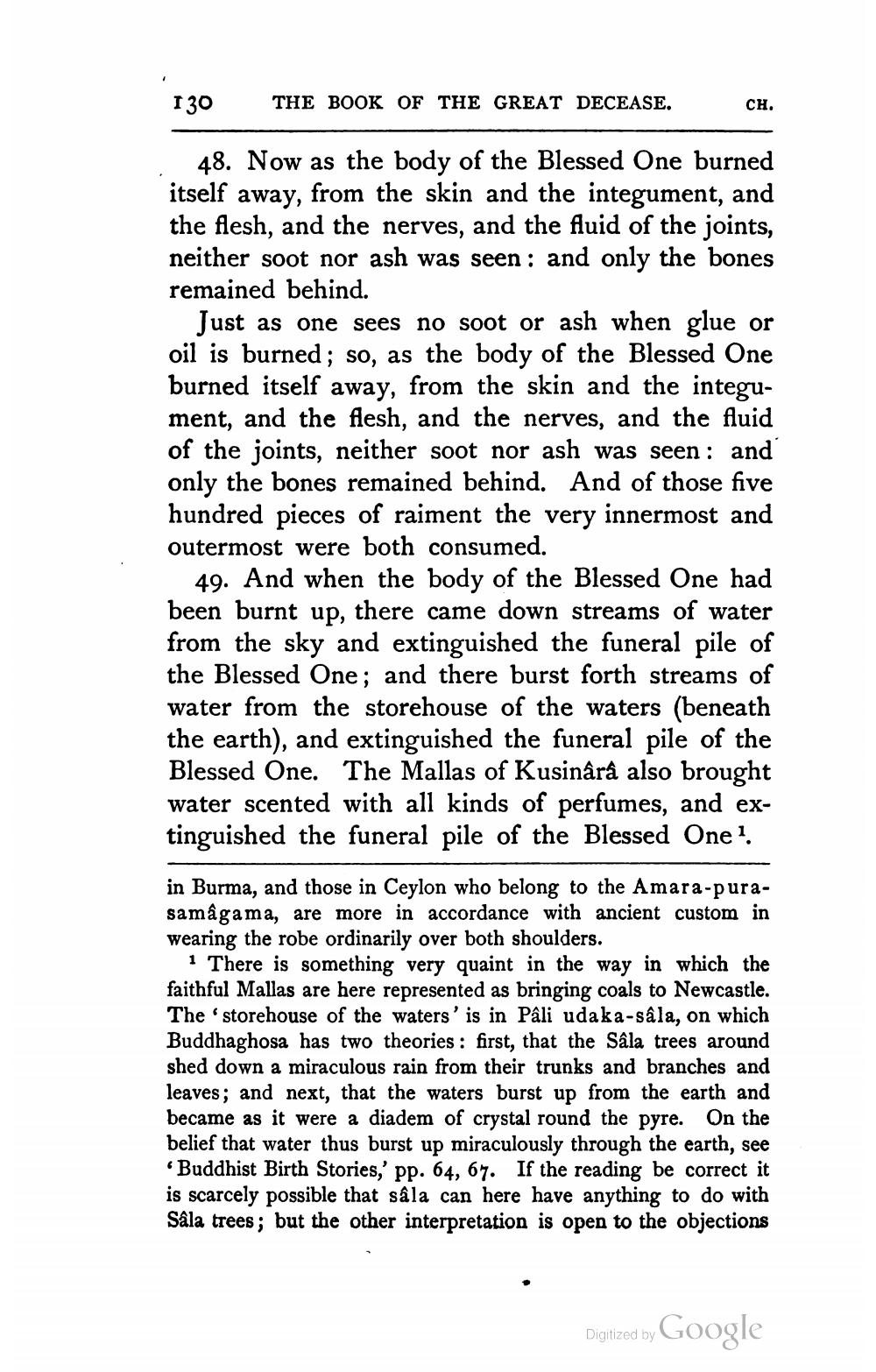________________
130
THE BOOK OF THE GREAT DECEASE.
ch.
48. Now as the body of the Blessed One burned itself away, from the skin and the integument, and the flesh, and the nerves, and the fluid of the joints, neither soot nor ash was seen : and only the bones remained behind.
Just as one sees no soot or ash when glue or oil is burned; so, as the body of the Blessed One burned itself away, from the skin and the integument, and the flesh, and the nerves, and the fluid of the joints, neither soot nor ash was seen: and only the bones remained behind. And of those five hundred pieces of raiment the very innermost and outermost were both consumed.
49. And when the body of the Blessed One had been burnt up, there came down streams of water from the sky and extinguished the funeral pile of the Blessed One; and there burst forth streams of water from the storehouse of the waters (beneath the earth), and extinguished the funeral pile of the Blessed One. The Mallas of Kusinârà also brought water scented with all kinds of perfumes, and extinguished the funeral pile of the Blessed One 1.
in Burma, and those in Ceylon who belong to the Amara-purasamagama, are more in accordance with ancient custom in wearing the robe ordinarily over both shoulders.
1 There is something very quaint in the way in which the faithful Mallas are here represented as bringing coals to Newcastle. The 'storehouse of the waters' is in Pâli udaka-sála, on which Buddhaghosa has two theories : first, that the Sala trees around shed down a miraculous rain from their trunks and branches and leaves; and next, that the waters burst up from the earth and became as it were a diadem of crystal round the pyre. On the belief that water thus burst up miraculously through the earth, see
Buddhist Birth Stories,' pp. 64, 67. If the reading be correct it is scarcely possible that sâla can here have anything to do with Sâla trees; but the other interpretation is open to the objections
Digitized by Google




